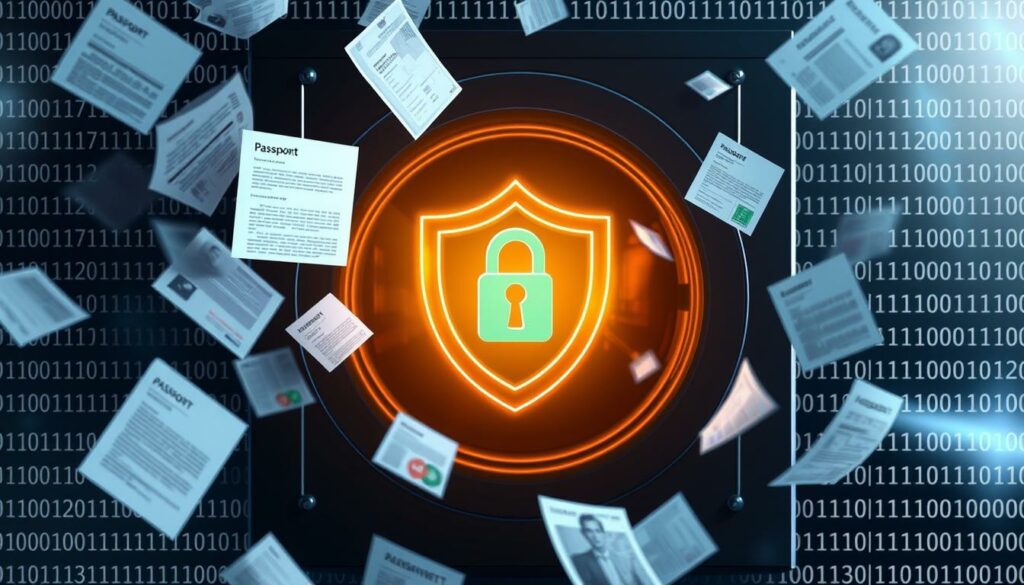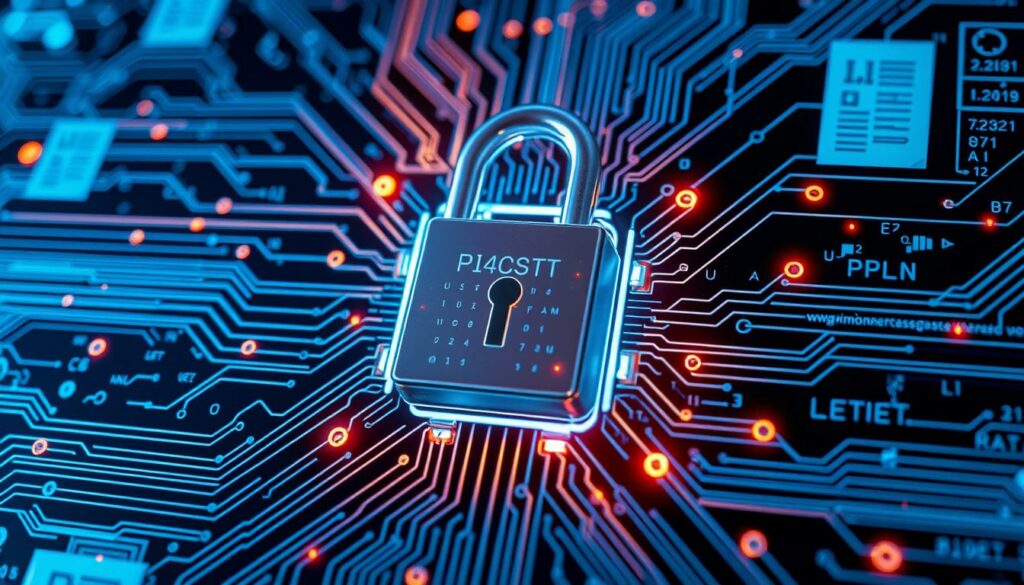What Type of Files Need To Be Encrypted
ISafeguarding your data is more critical than ever. The average cost of a data breach rose to $4.45 million in 2022. A 15% increase in just two years — highlighting the urgent need for encryption to protect sensitive information from malicious attacks. Almost all information is at risk. Even emails can contain valuable data that requires protection.
Recent breaches underline the severity of the issue. In August 2023 alone, 73 breaches exposed nearly 80 million records worldwide, proving that no one is immune to cyber threats. It’s crucial to determine which files to encrypt, especially if someone loses or steals a device.
Encryption converts sensitive data into unreadable code, accessible only with a decryption key. The Advanced Encryption Standard (AES), with keys up to 256 bits, ranks among the most secure methods. Many use it to protect personal and business data. Encryption methods vary, from symmetric encryption for large data sets to asymmetric encryption for secure communication.
Implementing strong encryption is essential, as breaches cost millions and expose billions of records annually. It safeguards data, ensures compliance with privacy laws, and maintains trust in an increasingly vulnerable digital landscape.
Continue reading to explore the different types of encryption and how they can meet your specific needs.
1. Personal Data Files
Protecting personal documents is essential, especially as identity theft continues to rise. In 2021, the US Federal Trade Commission received 1.4 million identity theft complaints, highlighting the importance of safeguarding sensitive information.
Critical documents like passports, driver’s licenses, birth certificates, financial records, and medical data require strong encryption. Using secure, encrypted file-sharing platforms with password protection and link expiration ensures privacy when sharing these files.
Encrypting file types such as PDFs, images, and text files further reduces the risk of identity theft, keeping your personal information secure.

2. Business Confidential Documents
Businesses deal with a lot of sensitive information. This includes HR data, legal documents, and strategic plans. Encrypting these documents is key to keeping business secrets safe and meeting laws like GDPR and HIPAA.
Strong encryption and data protection are vital. Many companies use Windows Active Directory to manage file access, while others choose cloud-based solutions like Azure Rights Management Services. These tools help control who can see, edit, or share sensitive files.
The cost of not protecting business information is high. IBM says the average data breach costs $3.86 million. This shows how important it is to have good security measures. Companies should use end-to-end encryption for all sensitive documents to lower risks.
A good data security plan starts with knowing what information you have. Then, reduce data collection, secure it well, and plan for the future. By following these steps and using encryption tools, businesses can keep their confidential documents safe and stay competitive.
3. Financial Records
Financial records are a big target for hackers. They look for things like bank statements, tax returns, and credit card information. In 2022, cybercriminals hacked over 22 billion records worldwide, which shows how important it is to keep financial documents safe.
Businesses need to make sure they transfer and store financial data securely. A single mistake can cost a company $5.87 million. To avoid this, they should encrypt files like bank statements and credit reports. This step helps stop fraud and keeps data safe.
Encryption is key for many industries that handle financial data. Banks, law firms, and online shops all need to protect customer info. Encrypting financial records keeps data private and follows rules like PCI DSS. Strong encryption helps keep financial info safe and keeps customers trusting the company.

4. Health-Related Files
Health files need strong protection to keep patient info safe and follow the rules. Medical records contain private details that must remain hidden from prying eyes. The Health Insurance Portability and Accountability Act (HIPAA) sets strict security rules for these files.
HIPAA has three main rules for keeping patient data safe:
- Privacy Rule
- Breach Notification Rule
- Security Rule.
These rules tell healthcare groups to use strong security to protect electronic health information. Encryption is key to the HIPAA Security Rule, and experts consider it a must.
Not using encryption can cause big problems. In 2019, the University of Rochester Medical Center paid $3 million after thieves stole a laptop and flash drive. This shows why encrypting devices with medical records is crucial.
To follow privacy rules, healthcare groups must use encryption that meets HIPAA standards. They should use AES-256 for data storage and TLS for data moving. With strong encryption, healthcare providers can keep patient info safe and earn patient trust.

5. Intellectual Property and Trade Secrets
Protecting intellectual property is key in today’s digital world. Companies spend a lot on unique ideas and processes. They need strong protection against theft.
Trade secrets are a big part of this. They remain valuable as long as they stay secret. But the internet makes it harder to keep them safe. A simple mistake can expose them.
Many companies leave sensitive files open to risk, which can lead to huge financial losses and damage to a company’s reputation and edge.
Encryption software is a strong defense. It keeps data safe, including inventions and trade secrets. Secure platforms help professionals protect their work. With encryption, companies can keep their intellectual property safe and valuable.

6. Emails and Communications
Emails often carry sensitive information, making robust encryption essential. While many email services provide basic encryption, it typically applies only to messages within their own systems. This underscores the need for strong end-to-end encryption (E2EE) to ensure secure communication.
Methods like S/MIME, PGP/MIME, and TLS offer various levels of protection, but E2EE is the most secure, allowing only the sender and receiver to access email content. This is critical for businesses managing personal information, financial data, or intellectual property.
Encryption for secure file transfer protects sensitive data and enhances trust and compliance with regulations like GDPR and HIPAA. Encrypted emails reduce phishing risks by making it harder for scammers to impersonate legitimate messages.
To avoid financial and reputational losses, companies should assess email vulnerabilities and implement strong encryption for all sensitive communications. By encrypting emails, businesses can ensure privacy and protect against unauthorized access.
7. Backups and Archives
Encrypting backups is a key way to keep data safe. Strong encryption algorithms make data unreadable, so even if someone gets their hands on the storage, they can’t access the data.
But encryption is just the start. The 3-2-1 Backup Rule suggests having three copies of data. Two should be on different formats, and one should be off-site. This makes data more secure and easier to recover.
There are many ways to store backups, such as hard drives, servers, and cloud storage. Securely sharing large files is also important for backups and archives.
Using these methods helps businesses comply with regulations like GDPR and PCI DSS. It’s also important to test how well you can recover encrypted backups to ensure that data is accessible when needed.
By focusing on backup security, businesses can lower the risk of data breaches. This includes the safe sharing of video files to avoid the costly consequences that follow.
Cloud Storage Security
Cloud storage is now key for many. It’s especially important with more people working remotely. Keeping files safe in the cloud is a big deal.
Strong encryption is crucial for this. Services like Proton Drive use end-to-end encryption. This means only the user can access the files, keeping them private.
Symmetric encryption, like AES, provides speed and effectiveness for server files. When moving files, asymmetric encryption comes into play, with elliptic-curve cryptography often serving as the preferred choice.
The TLS protocol secures HTTPS connections, which cloud providers use. Google says 96% of pages in the US use HTTPS, which shows that encryption is everywhere.
But there are still challenges. Zscaler found that over 80% of attacks use encrypted channels. Many organizations don’t check most of their encrypted traffic, making them vulnerable.
To stay safe, pick cloud storage with strong encryption. Also, add extra security for important files.
Secure Your Digital Life: Take Charge of Your File Protection With DivShare
In today’s digital world, safeguarding your files isn’t optional — it’s essential. Encryption software protects sensitive information from cyber threats, ensuring personal and business data stays secure.
Start by identifying your most sensitive files and applying strong encryption. Best practices like effective key management and encrypting data — whether in transit, at rest, or in use — provide added protection.
For businesses, this includes encrypting client contracts, financial records, and other critical documents. Individuals should focus on securing personal data such as medical records and social security numbers. When sharing sensitive content, always use secure, reliable methods to maintain privacy.
Staying proactive by regularly reviewing encryption measures and keeping up with emerging threats significantly reduces the risk of data breaches. Make file security a priority in your digital life.
Ready to enhance your file security? DivShare offers secure, efficient file storage, sharing, and management. Sign up today for advanced solutions designed to keep your data safe.